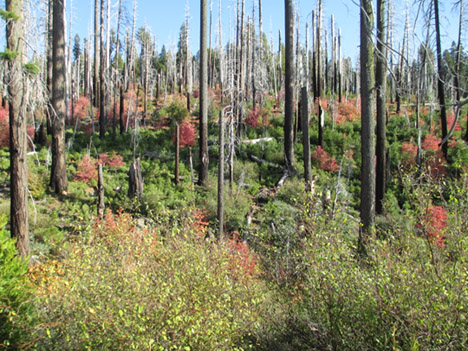Kimberley Davis and Philip Higuera, University of Montana
Thursday, July 9, 2020, 11am MDT
Advanced registration is required for this webinar. Click here for more information.
Managers tasked with maintaining forest ecosystems and the services they provide are challenged by the combined impacts of increasing wildfire activity and more stressful post-fire climate conditions. To understand how climate change may affect post-fire regeneration, we examined the relationship between annual climate and post-fire tree regeneration of two dominant, low-elevation conifers (ponderosa pine and Douglas-fir) using annually resolved establishment dates from 2820 destructively sampled trees from 32 wildfires across four regions in the western US. We showed that at dry sites across our study region, seasonal to annual climate conditions over the past 20 years have become increasingly unsuitable for regeneration, thus creating increasing uncertainty for managers about where they can expect forest recovery following fire. Given the recent increase in area burned across the West, managers often need to stretch limited resources for post-fire reforestation efforts. To help address these challenges, we are applying our models relating post-fire regeneration to annual climate conditions and other biophysical predictors to create a tool that predicts probability of post-fire regeneration within recent fire boundaries. The tool will help managers prioritize management actions, such as tree planting. We will discuss the recent application of this tool to a fire in western MT in collaboration with foresters from The Nature Conservancy.


